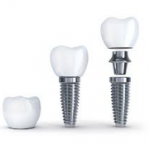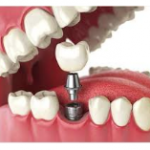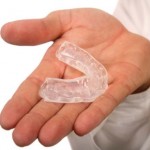If so, you would know that the pain can range from mild discomfort to excruciating pain. But did you know that dental pain can be caused by a variety of factors? In this blog, we will discuss some of the causes of toothaches, how to prevent them, and what to do if you are unlucky enough to experience one.
Causes of Toothaches
A toothache can be caused by a variety of factors, including:
1. Tooth decay: A hole or cavity will occur when bacteria in your mouth produce acids that eat away your tooth enamel. If left untreated, cavities will increase in size and can cause toothaches.
2. Gum disease: Gum disease is caused by the build-up of plaque and tartar on your teeth and if left for too long can lead to tooth loss and in some cases acute dental pain.
3. Tooth abscess: A tooth abscess is a collection of pus that forms in your tooth or gums. It can cause severe pain and swelling.
4. Tooth fracture: A tooth fracture can be caused by trauma to your mouth, such as a fall or a blow to the face. It can cause pain when you bite down or chew.
5. Grinding your teeth: Grinding your teeth can cause toothaches, as it can wear down your tooth enamel and cause sensitivity.
6. Tooth sensitivity: Tooth sensitivity can cause a sharp, shooting pain when you eat or drink something hot or cold.
7. Sinus infection: Due to the proximity of your sinus’ to your upper teeth, sinus infections can present as pain in your upper teeth.
8. Wisdom teeth: When your wisdom teeth start to erupt, they can cause pain and discomfort especially if they become impacted.
What to Do If You Experience a Toothache?
See your dentist as soon as possible, especially if you experience fever or swelling. Your dentist will diagnose the cause of your toothache and recommend the appropriate treatment.
The treatment for a toothache will depend on the cause of the pain. Some common treatments for toothaches include:
1. Filling a cavity: If your toothache is caused by a cavity, your dentist will remove the decayed part of the tooth and restore it with a filling material.
2. Root canal: If your toothache is caused by an infection in the pulp of your tooth, your dentist may recommend a root canal. During a root canal, your dentist will remove the infected pulp and fill the tooth with a filling material.
3. Gum disease treatment: If your toothache is caused by gum disease, your dentist will recommend treatment to remove the plaque and tartar from your teeth and gums.
4. Tooth extraction: If your tooth is severely damaged or infected and cannot be saved, your dentist may recommend a tooth extraction.
5. Antibiotics: If your toothache is caused by an infection, your dentist may also prescribe antibiotics to help clear up the infection.
In the meantime, there may be things you can do to alleviate the pain. Rinse your mouth with warm salt water. This can help reduce inflammation and ease the discomfort. Take over-the-counter pain medication, such as ibuprofen or Panadol and a cold compress can help to help reduce swelling and numb the pain. Avoid hot or cold foods and drinks, as they can make the pain worse.
In summary, if you have a toothache, it is important to see a dentist as soon as possible. Call us at Redcliffe Smiles on 1300 438 715 if you have a dental emergency, toothache or any other dental issues. We have appointment available today and will be more than happy to assist you with any concerns you may have.

 Dental Implants
Dental Implants How does it work?
How does it work?


